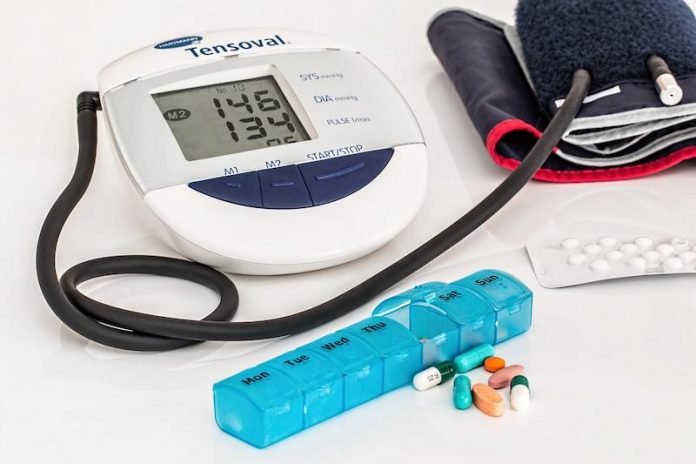
Scientists from the University of Edinburgh found that long-term use of paracetamol could increase the risk of heart disease and strokes in people with high blood pressure.
The research is published in Circulation and was conducted by Iain MacIntyre et al.
Paracetamol is a common painkiller used to treat aches and pain. It can also be used to reduce a high temperature.
It’s available combined with other painkillers and anti-sickness medicines. It’s also an ingredient in a wide range of cold and flu remedies.
Paracetamol was often suggested as a safer alternative to another class of painkillers called non-steroidal anti-inflammatory drugs (NSAIDs).
The previous study has shown that NSAIDs could increase blood pressure and the risk of heart disease. To avoid these risk factors, some patients use the prescription for Paracetamol to treat chronic pain.
In the current study, the team examined 110 patients with a history of high blood pressure.
These patients were prescribed one gram of paracetamol four times a day (a routinely prescribed dose in patients with chronic pain), or a matched placebo for two weeks.
The researchers found that the participants prescribed paracetamol saw a significant increase in their blood pressure, compared with those taking the placebo.
This rise was similar to that seen with NSAIDs and might be expected to increase the risk of heart disease or stroke by around 20 percent.
The findings suggest that it is necessary to conduct a review of long-term paracetamol prescriptions to patients—particularly those with high blood pressure, or those at particular risk of heart disease or stroke.
The team says that paracetamol—the world’s most used drug—increases blood pressure, one of the most important risk factors for heart attacks and strokes.
Doctors and patients together should consider the risks versus the benefits of long-term paracetamol prescription, especially in patients at risk of cardiovascular disease.
If you care about blood pressure, please read studies about how sugar and whole fruit could affect your blood pressure, and blood pressure drops 14 years before death.
For more information about blood pressure, please see recent studies that unstable blood pressure may mean big dementia risk, and results showing this blood pressure drug may repair blood vessels in brain.
Copyright © 2022 Knowridge Science Report. All rights reserved.



